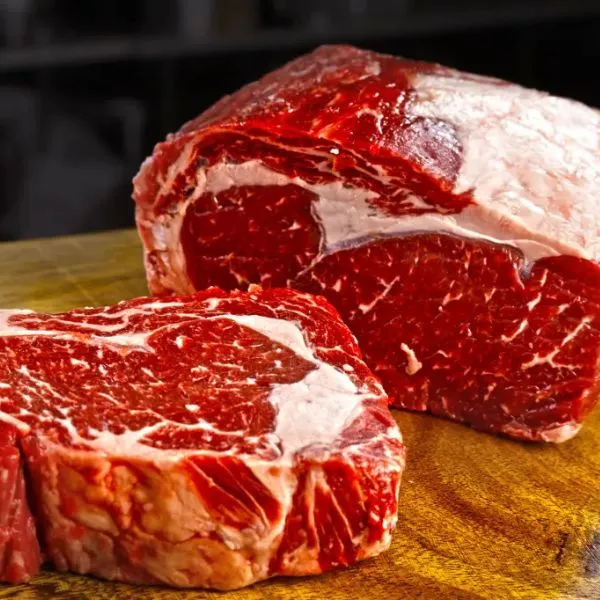The Truth About Red Meat and Cancer Risk: What You Need to Know
Red meat has been a popular part of many diets for its rich flavor, high protein, and cooking versatility. But in recent years, concerns have arisen about its potential link to cancer, especially processed meats like bacon, sausage, and hot dogs. So, how much truth is there to the claim that eating increases cancer risk? Let’s take a closer look at the science behind it.
What the Research Says About Red Meat and Cancer
The link between red meat and cancer risk mainly comes from studies that associate high consumption of red and processed meats with certain cancers, particularly colorectal cancer (cancer of the colon or rectum). In 2015, the World Health Organization (WHO) classified processed meats as a Group 1 carcinogen, meaning there’s strong evidence it can cause cancer in humans. It was classified as a Group 2A carcinogen, meaning it’s probably carcinogenic based on limited evidence.
But before you put down that steak, let’s examine what the evidence actually shows.

What Is the Risk?
While studies show a link between red and processed meats and cancer, the overall risk is relatively small. Here are the key points:
Processed Meats: This includes bacon, hot dogs, sausages, and salami. The main risk comes from substances like nitrates and nitrites, which can form cancer-causing compounds when processed and cooked.
Red Meat: This refers to beef, lamb, pork, and goat. Studies show a modest increase in the risk of colorectal cancer for those who eat large amounts regularly. However, this risk is small compared to other lifestyle factors, such as smoking or excessive alcohol consumption.
For example, the American Cancer Society states that consuming 50 grams of processed meat daily (about one hot dog or two slices of bacon) raises colorectal cancer risk by about 18%. This may sound alarming, but the actual risk of developing cancer from eating red meat is low, especially when consumed in moderation.
How Does Red Meat Increase Cancer Risk?
The exact mechanisms behind the link to cancer are still under study, but here are some possible factors:
- Heterocyclic Amines (HCAs): These chemicals form when meat is cooked at high temperatures, especially when grilling or frying. HCAs can damage DNA, which may lead to cancer.
- Polycyclic Aromatic Hydrocarbons (PAHs): These chemicals form when meat is cooked over an open flame and are associated with increased cancer risk, particularly if the meat is charred.
- Nitrates and Nitrites in Processed Meats: These preservatives can convert into nitrosamines during cooking, which are known carcinogens.
- Iron in Red Meat: It is high in heme iron. Some studies suggest high levels of heme iron may create harmful compounds in the colon, which can damage cells and increase cancer risk.
How Much Red Meat Is Safe to Eat?
The key is moderation. The American Institute for Cancer Research recommends limiting red meat to no more than 18 ounces (500 grams) per week and avoiding processed meats as much as possible.
Here are some tips to reduce your cancer risk:
- Choose lean cuts: Opt for lean beef, pork, and lamb. Trim any visible fat to reduce fat content, which may help lower cancer risk.
- Cook at lower temperatures: Instead of grilling or frying at high heat, bake, roast, or slow cook meat to reduce harmful chemical formation.
- Include plant-based proteins: Add beans, lentils, tofu, and quinoa to your diet. This will help reduce red and processed meat intake.
- Add more vegetables and fiber: A diet high in fiber from fruits, vegetables, and whole grains may help protect against cancer risks associated with red meat.
Is Red Meat Really That Bad?
Eating red meat in moderation is unlikely to cause cancer, especially if you follow a balanced diet. The main risk comes from eating excessive amounts of processed meats or large quantities of red meat over time. If you enjoy red meat, there’s no need to cut it out completely. Just be mindful of how much and how often you eat it.
Additionally, unprocessed, grass-fed beef tends to have a better nutrient profile and fewer harmful chemicals than conventionally raised beef. Choosing high-quality, organic, or grass-fed meats can help reduce some risks.
Conclusion: Moderation Is Key
Red meat doesn’t automatically lead to cancer, but eating large amounts, particularly processed meats, can increase your risk. By focusing on moderation, healthy cooking methods, and diversifying your protein sources, you can enjoy without significantly increasing your cancer risk.
Next time you cook a steak or enjoy a burger, remember that balance is key. Incorporating a variety of healthy foods and limiting processed meats will help you maintain a health-conscious, delicious diet.


